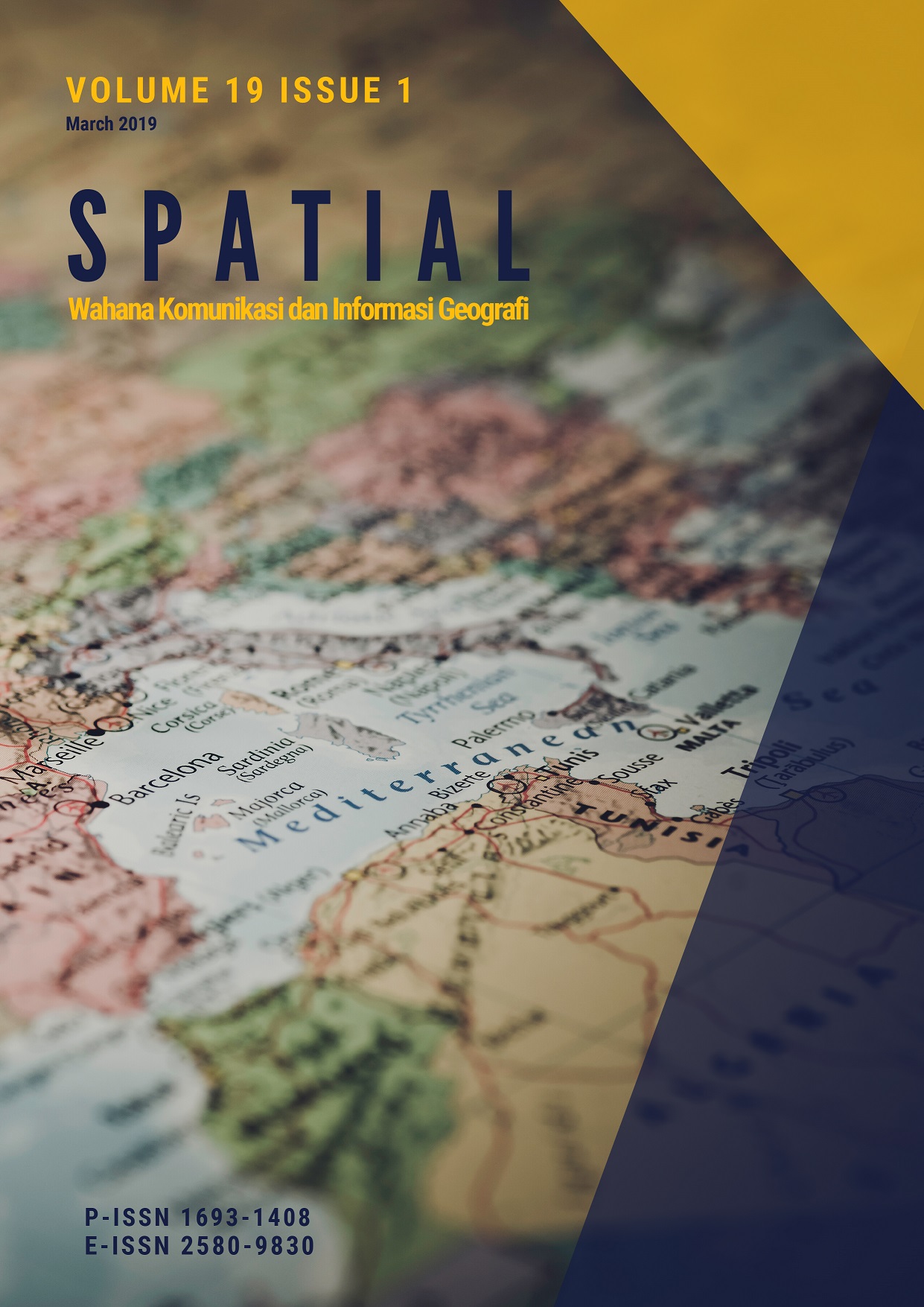Space, Region, and Power: Regional Boundary Conflicts in The Regional Autonomy Era
DOI:
https://doi.org/10.21009/spatial.191.05Keywords:
spatial conflict, territorial splits, regional autonomyAbstract
This study discusses the regional boundary conflicts that occurred in Indonesia during the era of regional autonomy. The conflict occurred because of a lack of planning, in the design of decentralization, as well as weak regulation. In reality, regional boundary conflicts hinder the implementation of government functions, reduce the level of service to the community, and potentially lead to legal uncertainty. Regional boundary conflicts, in the form of spatial conflicts (territories) are caused by several factors, namely: Economy, in the form of potential control of natural resources; political factors, related to electoral politics; juridical factors, weak legislation; social factors; historical and cultural factors; administrative technical factors, in the form of overlapping agency maps. As a way of solving it needs to be done through juridical settlement; regional cooperation bordering each other; and the application of one map policy. In addition, solutions can be through community participation, from various groups and social strata.
Downloads
Published
How to Cite
Issue
Section
License
An author who publishes in the journal SPATIAL Wahana Komunikasi dan Informasi Geografi agrees to the following terms:
Author retains the copyright and grants the journal the right of first publication of the work simultaneously licensed under the Creative Commons Attribution 4.0 License that allows others to share the work with an acknowledgement of the work's authorship and initial publication in this journal
Author is able to enter into separate, additional contractual arrangements for the non-exclusive distribution of the journal's published version of the work (e.g., post it to an institutional repository or publish it in a book) with the acknowledgement of its initial publication in this journal.
Author is permitted and encouraged to post his/her work online (e.g., in institutional repositories or on their website) prior to and during the submission process, as it can lead to productive exchanges, as well as earlier and greater citation of the published work (See The Effect of Open Access).
This work is licensed under a https://creativecommons.org/licenses/by/4.0/









